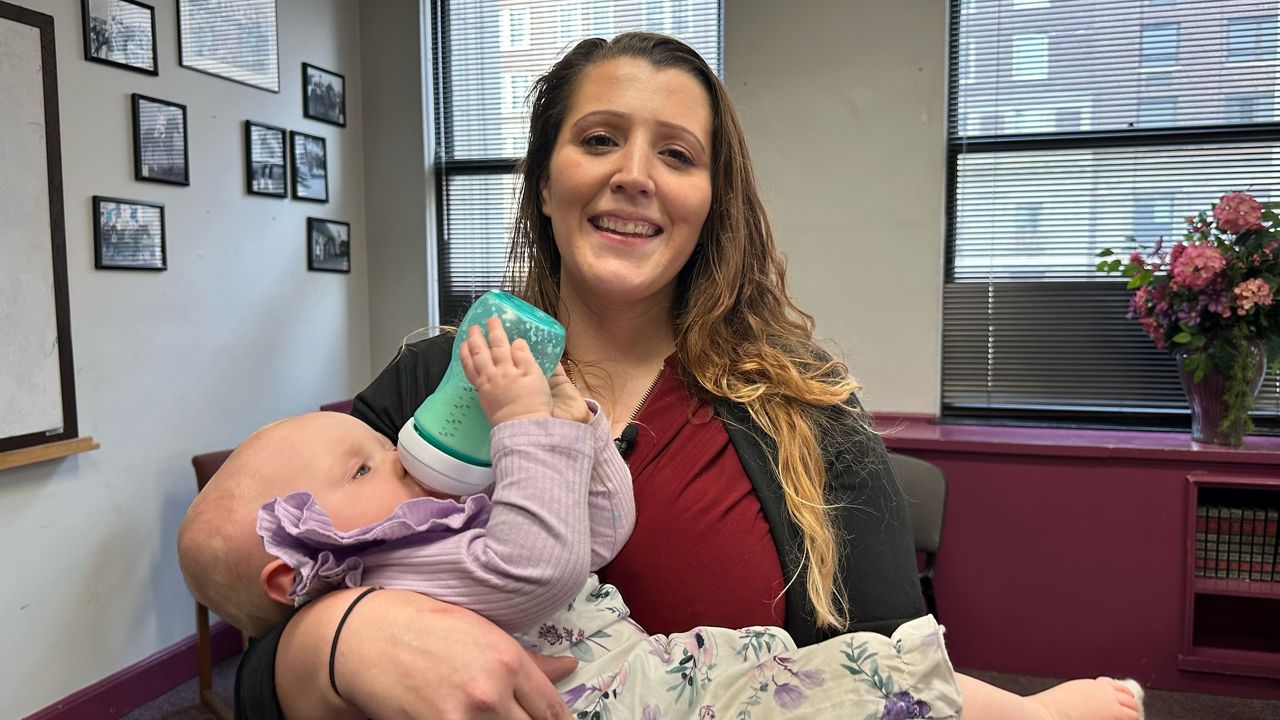LOUISVILLE, Ky. — Brittany Morris celebrated a birthday party last week for her 1-year-old daughter, Amirahh.
There were presents and a cake with pink frosting.
Amirahh had taken her first steps recently, and she was trying out a few more, as Morris followed behind her.
Morris described Amirahh as “full of life” and said her daughter saved her life after years in addiction.
“The day that I found out that I was pregnant with her I still had drugs, but I just couldn’t, I couldn’t do them,” said Morris. “But after like a week, it was too hard. I was too sick, so I went to the Suboxone clinic and they prescribed me Subutex and then from there I got into the Norton OBGYN and they sent me to Norton [Maternal-Fetal] Medicine.”

A new study from the National Institute on Drug Abuse (NIDA) at the National Institutes of Health (NIH) shows many others aren’t getting the care they need during and after pregnancy.
It says overdose deaths in pregnant and postpartum patients more than tripled among those 35 to 44 from early 2018 to late 2021, according to a news release.
“The stigma and punitive policies that burden pregnant women with substance use disorder increase overdose risk by making it harder to access life-saving treatment and resources,” according to Dr. Nora Volkow, NIDA Director and senior author on the study.
“We’re seeing a lot of these women are afraid of what will happen with regards to the custody of their child,” said Dr. Kendal Stephens with Norton Children’s Maternal-Fetal Medicine. “They often are not engaging in prenatal care for that reason. When they do come in to see us here at the hospital, they’re often a lot sicker and they have a lot more medical co-morbidities.”
The Norton Maternal Opiate and Substance Treatment (MOST) program offers inpatient and outpatient services including peer support, medication assisted treatment and education on reversing overdoses.
“I think a lot of women really do not want to use drugs in pregnancy, and they are trying to be abstinent and trying to seek sobriety on their own without help,” said Stephens. “When they do that, then if they have a relapse, they have a lower tolerance and so they’re highly likely to overdose. So one of the things that we’ve found is that we give all of our patients a Narcan kit and education.”
Narcan is a medication used to reverse overdoses.
Angela Adams, a licensed clinical social worker with the Norton MOST program, said it’s never too late to seek treatment, even after the baby arrives.
“I think as medical providers, the more we can move to a trauma-informed approach, the easier it’s going to be for patients to come in and seek care and feel heard and develop that trust that they need to be successful with their process,” she said.
Today Morris, an organizer for VOCAL KY, has a home of her own and remains on Suboxone.
Getting to this birthday milestone wasn’t easy.
“I think that it is just as important to have that support and to focus on the mothers after they have the baby because it’s hard,” she said.
She got into treatment not only for her daughter but also for herself, she said.
“I feel free and I feel like I have a future and I have a path now,” said Morris.
And every day, she said, it gets a little easier.
To find a treatment facility accepting clients, visit here.



